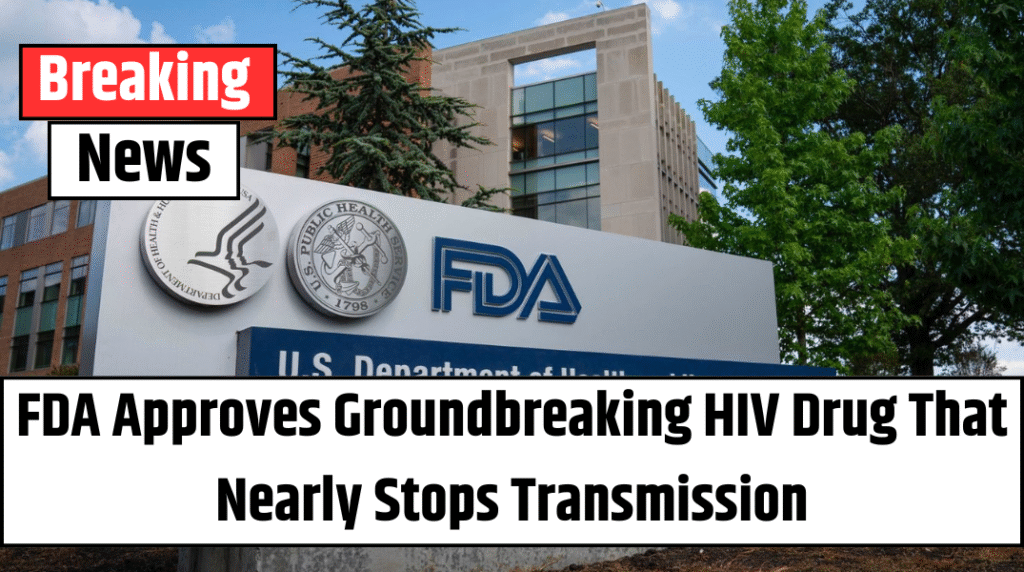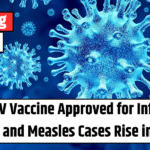The fight against HIV just received a historic boost. The U.S. Food and Drug Administration has approved Yeztugo—a groundbreaking injectable HIV-prevention drug by Gilead Sciences that only needs to be taken twice a year. In clinical trials, the drug, also known by its generic name lenacapavir, showed near-total effectiveness in preventing HIV transmission among at-risk populations.
The drug’s approval has been met with enthusiasm and hope, with many in the public health community viewing it as a potential turning point in America’s decades-long battle against the virus.
“This might be our single most transformative opportunity to end HIV transmission in over four decades,” said Mitchell Warren, head of the advocacy group AVAC.
Why Yeztugo Stands Out
Unlike daily oral PrEP medications like Truvada or Descovy, Yeztugo is a long-acting antiretroviral that works by preventing the virus from replicating inside immune cells. Administered by health professionals every six months, it sidesteps the adherence issues that have limited the real-world success of daily PrEP pills.
In clinical trials, Yeztugo slashed the HIV infection rate by:
-
89% compared to participants taking Truvada, and
-
96% compared to those without any PrEP intervention.
Among cisgender women in sub-Saharan Africa, the results were especially staggering—not a single participant contracted HIV after receiving the injection.
“Yeztugo offers unprecedented protection—especially for those who struggle to keep up with daily pill regimens,” said Dr. Susanne Doblecki-Lewis, lead investigator for lenacapavir trials at the University of Miami.
From Breakthrough to Barrier: The Political & Economic Reality
Despite its scientific promise, Yeztugo enters the scene in the midst of intense political turbulence and economic obstacles that could hinder its impact.
At $14,109 per shot—equivalent to $2,352 per month—Yeztugo could face insurance pushback, especially when cheaper generics like Truvada are available for as little as $30 per month. Health plans may require higher copays or prior authorizations, creating friction for patients hoping to switch.
A more significant threat looms in the form of government budget cuts. The Trump administration’s proposed 2026 budget slashes $1.5 billion from domestic HIV programs, including plans to dismantle the CDC’s HIV Prevention Division. Experts worry this would cripple education, distribution, and awareness efforts, especially in underserved communities.
Also Read – New RSV Vaccine Approved for Infants as COVID and Measles Cases Rise in 2025
Meanwhile, a pending Supreme Court decision could eliminate no-cost coverage requirements under the Affordable Care Act, making preventive drugs like PrEP unaffordable for many.
“Even the best drugs can fail if people can’t access them,” warned Dr. Doblecki-Lewis.
Equity at the Heart of the Challenge
Although PrEP has reduced HIV rates significantly among white gay and bisexual men, Black and Latino men remain disproportionately affected and underrepresented among PrEP users.
Yeztugo’s biannual dosing could change that—if made widely available and if systemic access issues are addressed. Experts stress that for the new drug to reduce racial disparities in HIV infection, it must be accessible at low or no cost to uninsured or underinsured patients.
“If we don’t break down access barriers now,” said Doblecki-Lewis, “we risk reinforcing the very disparities this drug could help eliminate.”
A Future of Convenience and Hope—If Systems Cooperate
Yeztugo’s convenience is one of its biggest selling points: two injections a year mean fewer clinic visits, less disruption, and better adherence. It could be especially useful for populations such as:
-
Individuals who inject drugs
-
Transgender people
-
Young adults navigating unstable housing or insurance
-
Anyone facing stigma for taking daily HIV medication
“We’re talking about a shift from 365 pills a year to two simple appointments,” said Tristan Schukraft, CEO of Mistr, a telehealth company ready to roll out Yeztugo nationwide. “That’s life-changing.”
Mistr plans to offer the drug in major LGBTQ+ hubs and through a wide clinic network that also caters to the uninsured. Gilead has also promised up to $7,200 in out-of-pocket assistance annually and free access for low-income individuals through its patient assistance program.
Also Read – Maui Wildfire Survivors Still Battling Mental Health and Poverty, Study Finds
The Bigger Picture: Is the U.S. Ready for a Game-Changer?
Despite its promise, Yeztugo faces an uphill battle. A recent CDC study found that while about 200,000 people were using PrEP at any point in 2023, this is just a fraction of the 1.5 million who would benefit from it. And with fewer than half of new PrEP users staying on it beyond six months, adherence and follow-up will be crucial—even with injectables.
If uptake and access improve, Yeztugo could help drive down the annual HIV transmission rate—stuck stubbornly around 30,000 cases per year—much faster than previous medications.
Public health advocates emphasize that the FDA approval is just the first step in a long road ahead. What follows will determine whether Yeztugo lives up to its potential.
“This is not just about a drug,” said Mitchell Warren. “It’s about making a national commitment to equity, access, and the end of HIV transmission in our lifetime.”
Bottom Line: Yeztugo has all the makings of a public health breakthrough—safe, effective, and easy to use. But only time will tell whether the U.S. has the infrastructure, political will, and equitable vision to fully harness its power.



